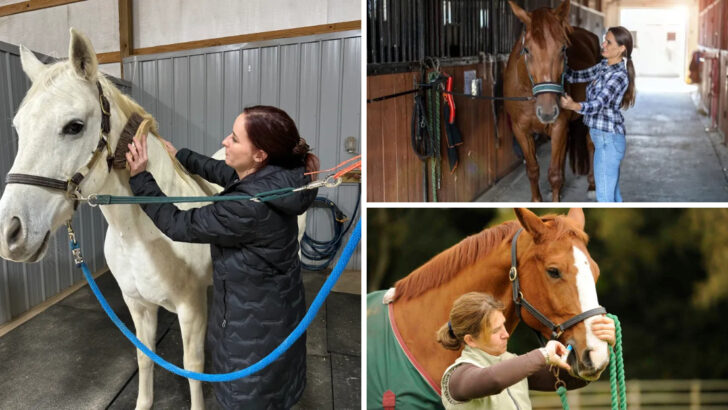A healthy horse isn’t just a matter of luck—it’s the result of smart care and attention to detail. Every horse owner knows that these majestic animals require more than just food, water, and the occasional pat on the neck.
From hoof maintenance to diet choices, the little things make a huge difference. Miss a crucial step, and you could be dealing with preventable health issues that are costly and heartbreaking. The good news? With the right knowledge, you can keep your horse thriving and strong.
Some tips might surprise you, while others will make you wonder why you weren’t doing them all along. Whether you’re a seasoned equestrian or new to the world of horse care, these essential secrets will help you provide the best life possible for your four-legged companion.
Balanced Nutrition
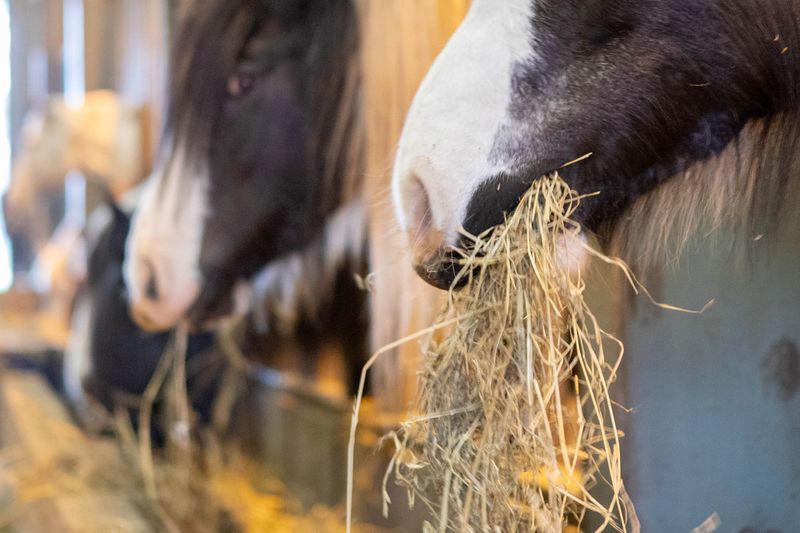
Providing a horse with balanced nutrition is crucial for its overall health and vitality. Make sure to offer a diet that includes high-quality hay, grains, and supplements if necessary. Consult with an equine nutritionist to tailor a feeding plan specific to your horse’s age, weight, and activity level.
Remember to provide fresh, clean water at all times to prevent dehydration. Regularly check your horse’s body condition score and adjust the diet accordingly to maintain optimal health. Balanced nutrition supports not only physical health but also your horse’s mood and energy levels.
Regular Hoof Care
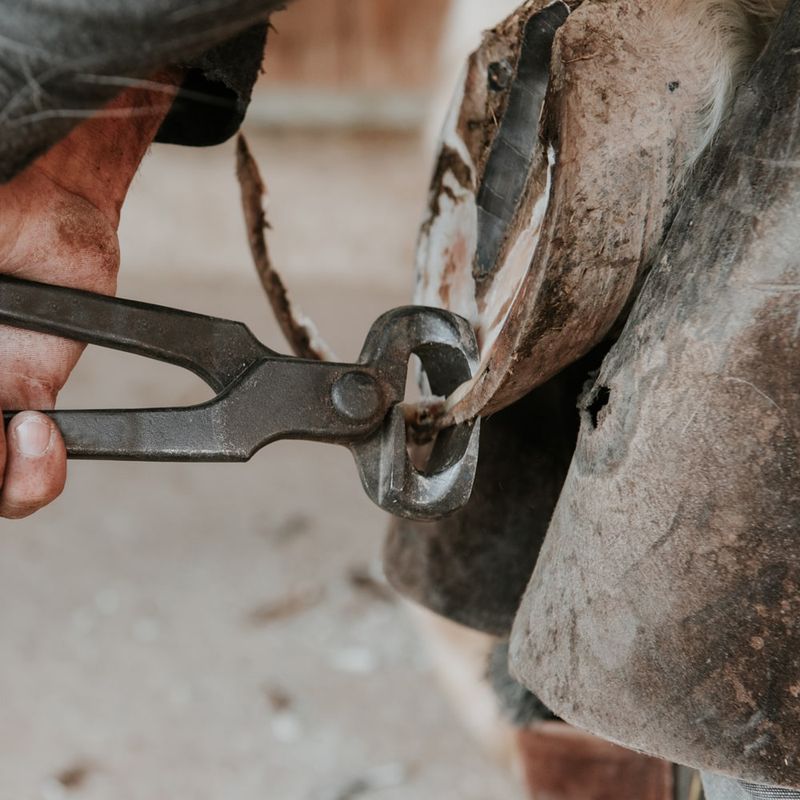
Hoof care is essential for a horse’s mobility and comfort. Schedule regular visits from a farrier to ensure proper trimming and shoeing. This helps prevent common hoof problems like cracks, thrush, or laminitis.
Inspect your horse’s hooves daily for stones, debris, or signs of injury. Clean them with a hoof pick and apply hoof conditioner if needed. Good hoof care not only keeps your horse moving comfortably but also prevents long-term damage that could affect their performance or cause pain.
Investing time in hoof maintenance pays off in your horse’s overall well-being.
Routine Veterinary Check-Ups
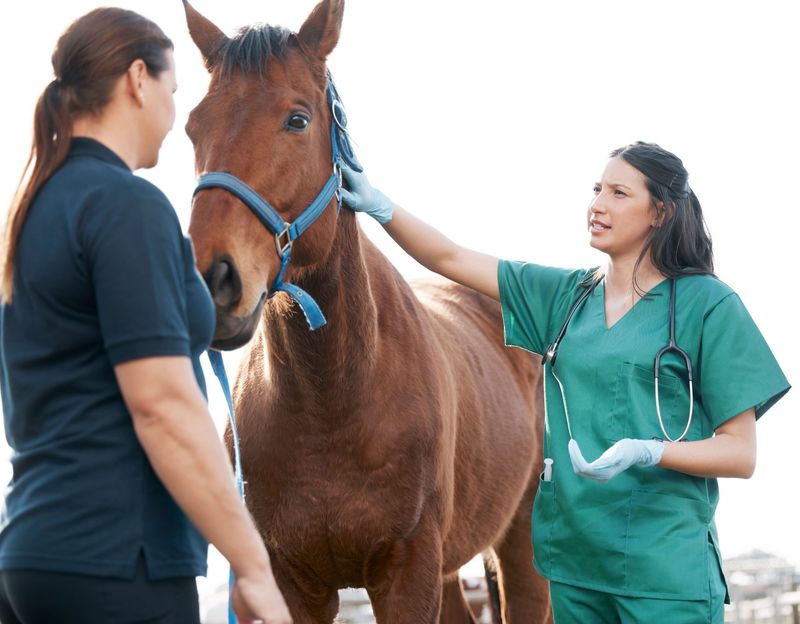
Routine veterinary check-ups are a cornerstone of preventive horse care. Schedule regular exams to catch any potential health issues early and ensure vaccinations are up-to-date. These visits allow you to discuss any concerns or changes in your horse’s behavior or physical condition.
A routine check-up typically includes a dental exam, vaccination updates, and a general health assessment. By prioritizing these appointments, you promote long-term health and address minor issues before they become serious.
Your veterinarian can provide personalized advice tailored to your horse’s specific needs and lifestyle.
Proper Grooming
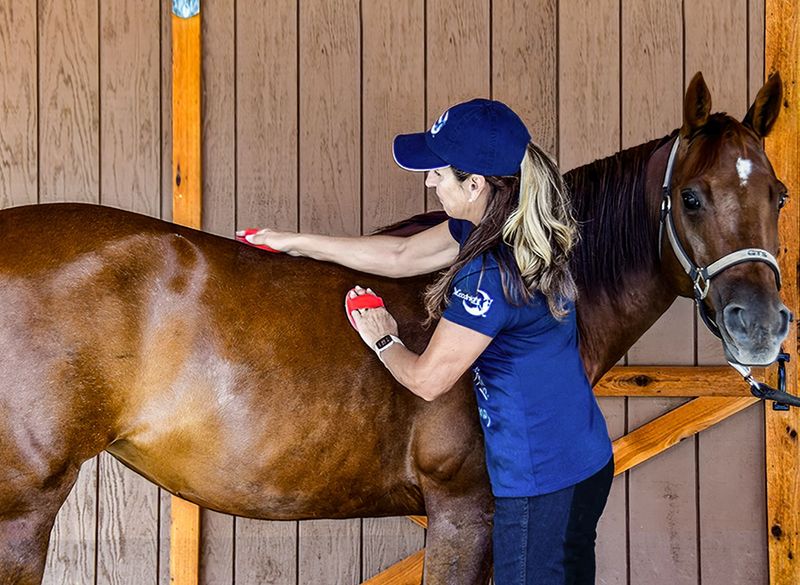
Grooming is more than just keeping your horse clean; it’s a bonding experience that allows you to check for skin issues or injuries. Use appropriate brushes and techniques to remove dirt, loose hair, and dander from your horse’s coat.
Pay special attention to areas prone to dirt buildup, like the mane, tail, and under the belly. Grooming increases circulation and can be soothing for your horse. Regular grooming sessions strengthen your relationship and help you identify any unusual lumps or bumps early.
Investing in quality grooming tools makes the process efficient and enjoyable.
Dental Care
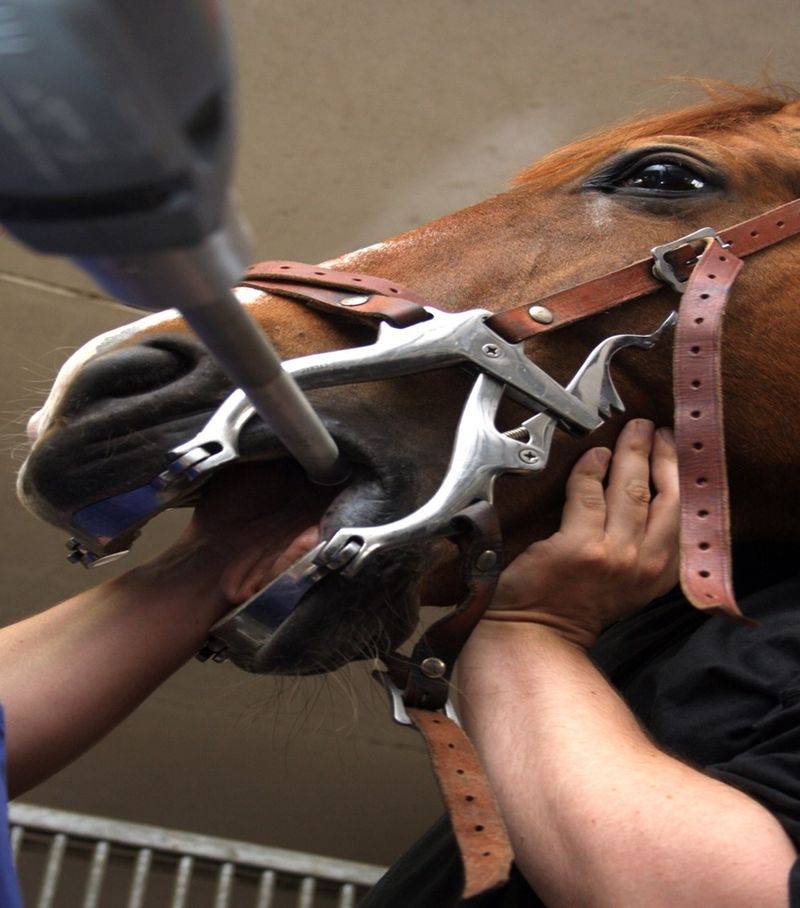
Dental care is crucial for a horse’s health, affecting their ability to eat and perform. Regular dental exams help identify issues like sharp edges, uneven wear, or infections.
A horse’s teeth grow continuously, making routine floating (filing down) necessary to ensure a comfortable fit and efficient chewing. Untreated dental problems can lead to weight loss, digestive issues, and discomfort.
Schedule dental check-ups at least once a year, or more frequently for older horses. This proactive approach keeps your horse eating well and feeling great, ultimately supporting their overall health and vitality.
Adequate Shelter
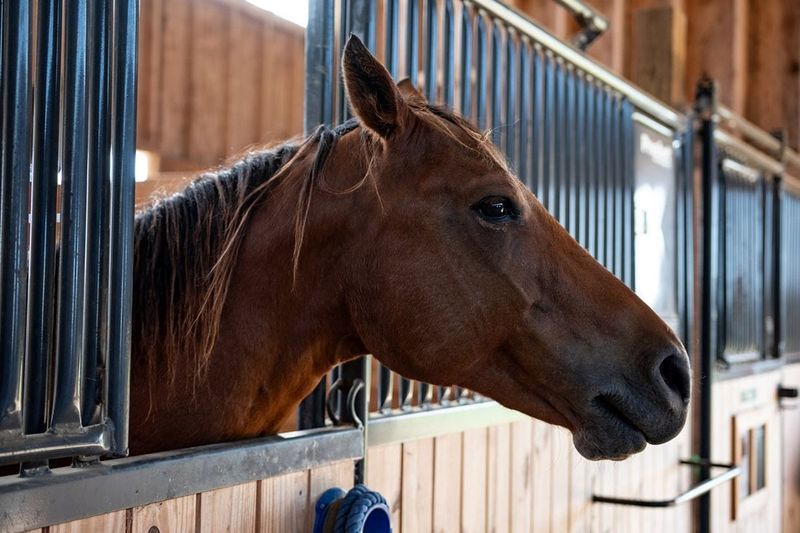
Providing adequate shelter protects horses from harsh weather conditions and offers them a safe resting place. Ensure your barn is well-ventilated to prevent respiratory issues. Each stall should be spacious, allowing horses to move comfortably and lie down easily.
The shelter should be clean, dry, and free from hazards such as sharp objects or exposed wiring. Regularly clean the stalls and provide fresh bedding to maintain hygiene and comfort. A well-maintained shelter contributes significantly to a horse’s mental and physical well-being, offering them a sense of security and peace.
Regular Exercise
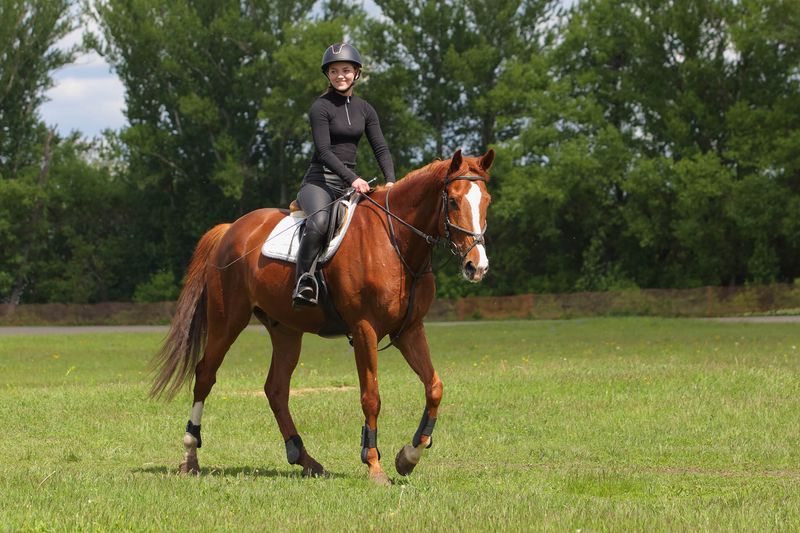
Regular exercise is vital for a horse’s health and happiness. It helps maintain muscle tone, joint flexibility, and cardiovascular fitness. Exercise routines should be tailored to the horse’s age, breed, and workload.
Incorporate activities like riding, lunging, or turnout in open fields. This not only keeps them physically fit but also supports mental stimulation, reducing boredom and anxiety. Observe your horse during exercise to ensure they are not overworked and adjust routines as necessary.
Engaging with your horse through exercise strengthens your bond and ensures a balanced, healthy lifestyle for them.
Social Interaction

Social interaction is fundamental to a horse’s emotional well-being. Horses are herd animals and thrive in the company of others. Provide opportunities for your horse to interact with other horses through shared turnout or adjacent stalls.
This socialization helps reduce stress and prevents behavioral problems like cribbing or weaving. Observe their interactions to ensure compatibility and prevent bullying. Socializing with other horses encourages natural behaviors and contributes to a balanced mental state.
Allowing time for social interaction enriches your horse’s life, promoting happiness and reducing feelings of isolation or loneliness.
Clean Environment
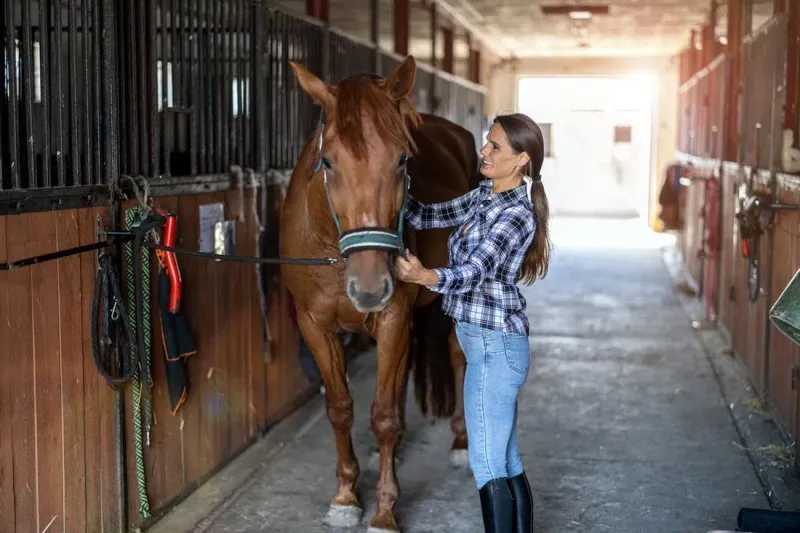
Maintaining a clean environment is essential for a horse’s health and comfort. Regularly clean stalls, paddocks, and watering troughs to prevent the spread of disease and reduce odors.
Ensure waste is disposed of properly and that bedding is replaced frequently. A tidy environment minimizes the risk of infections from bacteria or parasites. It also makes daily chores more pleasant and manageable.
A clean, organized stable provides a healthy living space that supports your horse’s physical and emotional well-being, creating a foundation for a thriving horse-owner relationship.
Proper Tack Fit
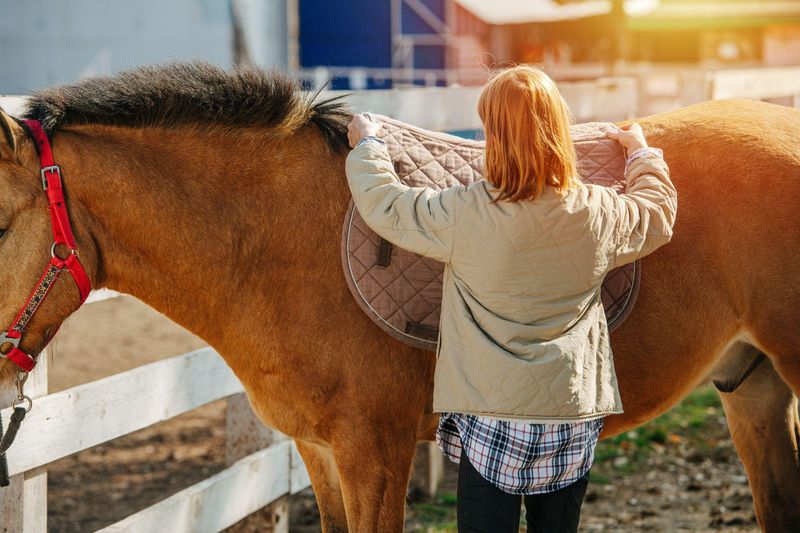
Ensuring proper tack fit is crucial for a horse’s comfort and performance. Ill-fitting tack can cause pain, sores, and restrict movement, leading to behavioral issues.
Consult with a certified saddle fitter to ensure your saddle, bridle, and other equipment fit your horse correctly. Regularly check tack for wear and tear, replacing items as needed.
Properly fitted tack allows your horse to move freely and comfortably, enhancing their performance and willingness to work. Investing in quality tack and regular fittings is essential for a positive riding experience and your horse’s well-being.
Parasite Control
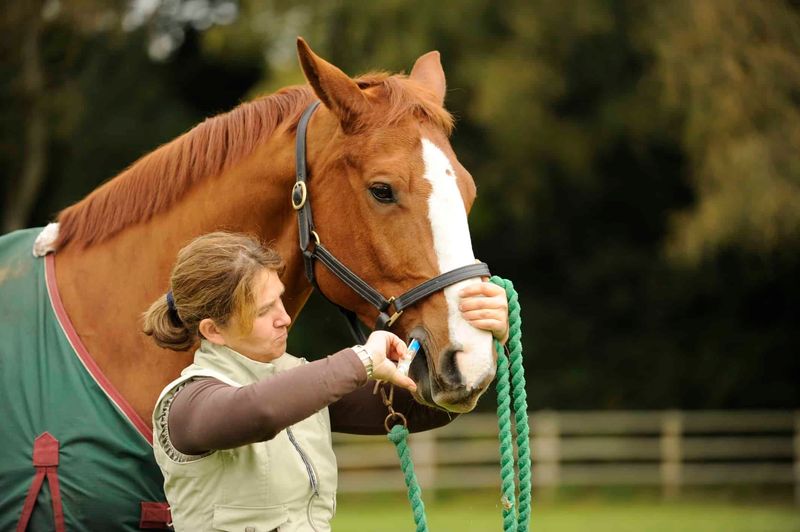
Parasite control is a key aspect of equine health management. Regular deworming programs help prevent infestations that can lead to weight loss, colic, or anemia.
Consult with your veterinarian to develop a parasite control plan based on your horse’s age, environment, and risk factors. Conduct regular fecal egg counts to monitor parasite levels and adjust treatments accordingly.
Consistent parasite management ensures your horse remains healthy and minimizes the risk of spreading parasites to other animals. It supports their digestive health and maintains optimal growth and development.
Weather Protection

Protecting horses from extreme weather is essential for their comfort and health. Use blankets to shield them from cold, wind, and rain when necessary. Ensure the blankets fit well and are suitable for the weather conditions.
In hot weather, provide shade and cool water to prevent heat stress. Monitor your horse for signs of discomfort and adjust their protection as needed.
Proper weather protection minimizes health risks associated with temperature extremes and keeps your horse comfortable year-round. Adapting to changing conditions ensures that your horse remains healthy and content, regardless of the season.
Hydration Management
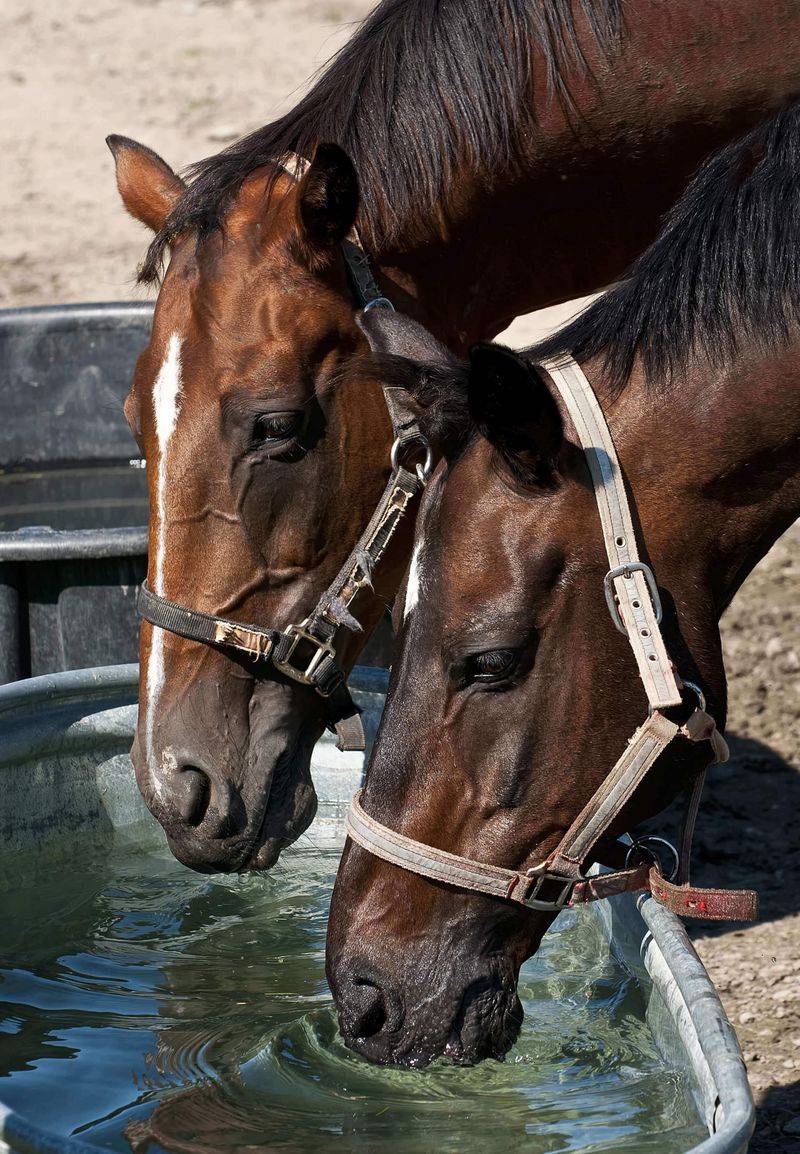
Ensuring proper hydration is crucial for a horse’s health. Horses need constant access to fresh, clean water to support their bodily functions and prevent dehydration.
Regularly check and clean water troughs to avoid contamination and bacteria growth. In colder months, ensure water does not freeze and remains accessible. Adequate hydration supports digestion, temperature regulation, and overall vitality.
Monitor your horse’s water intake, especially during hot weather or intense exercise, and adjust their environment or routine to encourage drinking. Keeping your horse well-hydrated is a fundamental aspect of equine care.
Mental Stimulation
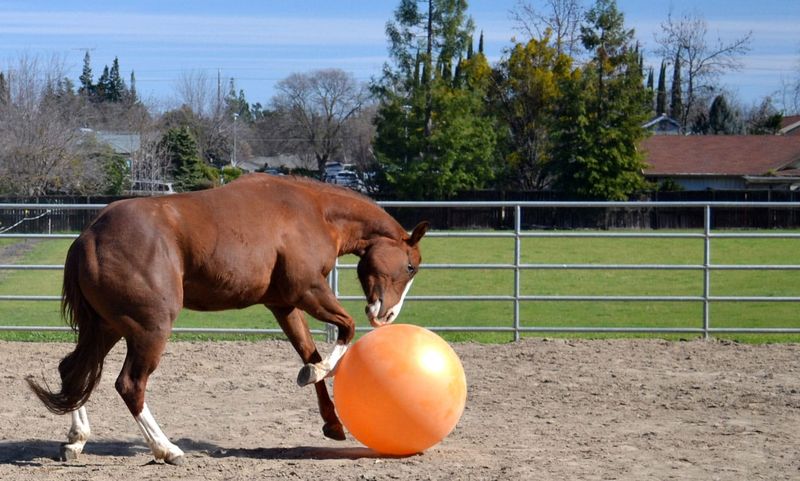
Mental stimulation is important for a horse’s well-being and can prevent boredom-related behaviors. Use toys, varied activities, and new environments to engage your horse’s mind.
Introduce puzzles or obstacle courses to challenge their problem-solving skills. Rotate toys or change their placement to maintain interest and curiosity.
Providing mental stimulation keeps your horse alert and reduces stress or anxiety. It enhances their quality of life by offering constant learning and engagement opportunities. A mentally stimulated horse is often happier and more well-adjusted.
Training Consistency
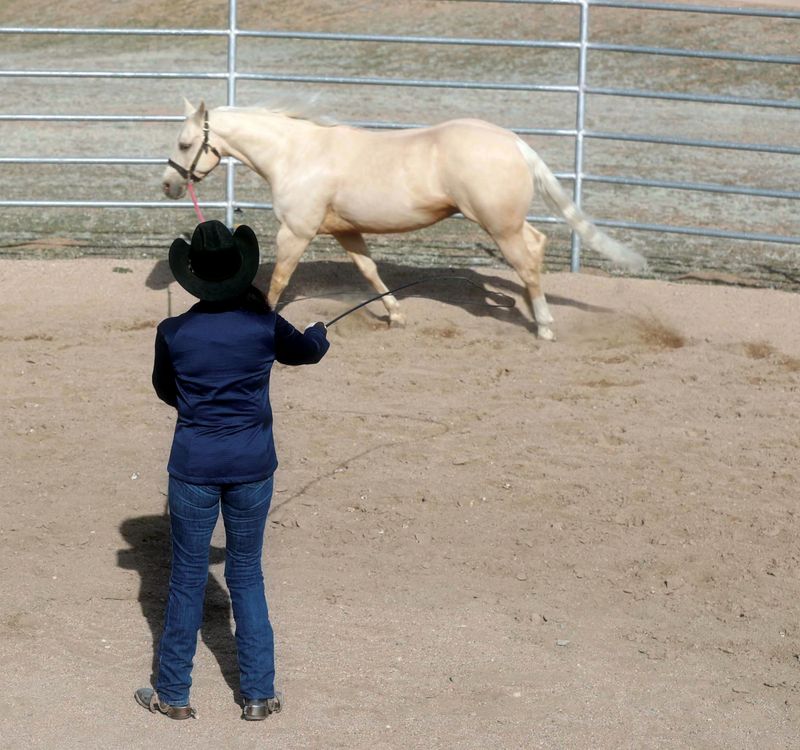
Consistent training is key to developing a well-mannered and responsive horse. Regular sessions reinforce learning and build trust between you and your horse.
Stick to a routine that progresses based on your horse’s pace and adaptability. Never rush or force training; patience leads to better results. Consistency in training helps prevent confusion and fosters a positive learning environment.
Each session is an opportunity to deepen your bond and improve communication. Regular practice ensures your horse responds well to commands and feels confident in their tasks.
Weight Management
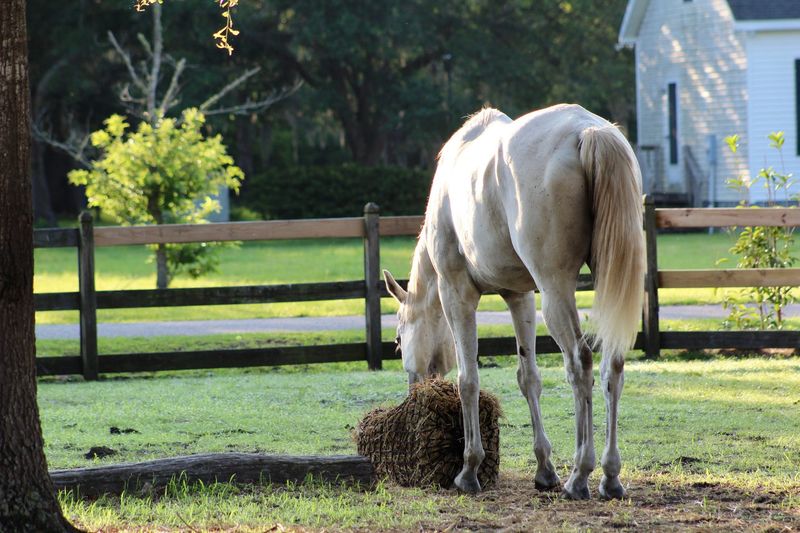
Weight management is crucial for preventing health issues in horses. Regularly assess your horse’s body condition and consult with a vet or nutritionist to adjust their diet and exercise regimen.
Obesity can lead to problems like laminitis, while underweight horses may lack energy and strength. Monitor their weight using tape measurements and visual checks, adapting feed and routines as needed.
Maintaining a healthy weight ensures your horse’s optimal performance and longevity, supporting their overall well-being and happiness. Paying attention to weight is a proactive way to prevent health hurdles.
Safe Fencing
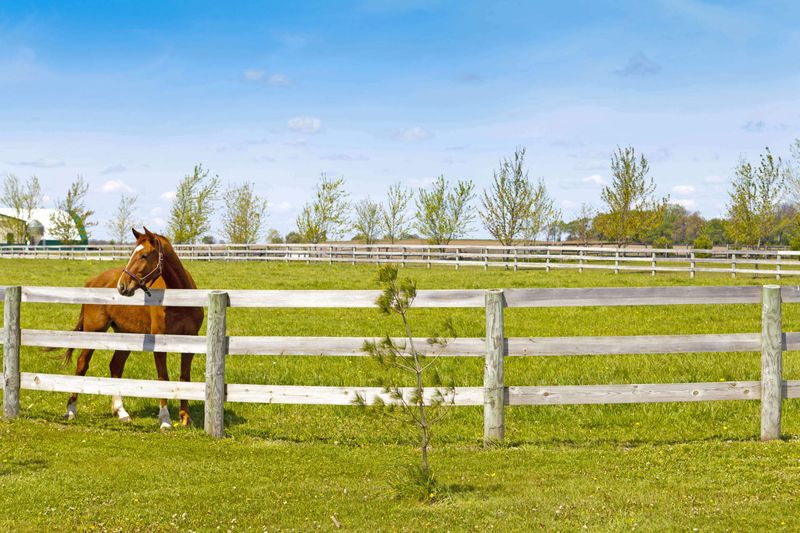
Safe fencing is vital for keeping horses secure and preventing injury. Inspect fences regularly for damage, loose boards, or sharp edges that could harm your horse.
Choose fencing materials that are strong, visible, and appropriate for your horse’s size and temperament. Electric fences can be used for additional security, but ensure they are properly installed and maintained.
A secure, well-maintained fence provides peace of mind, knowing your horse is safely contained. It minimizes the risk of injury or escape, contributing to a safe and controlled environment.
Emergency Preparedness
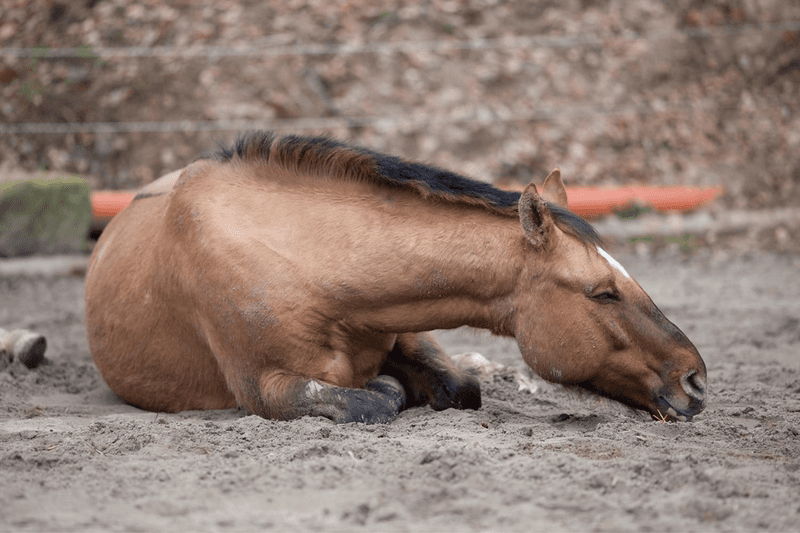
Being prepared for emergencies is essential for horse owners. Keep a well-stocked first aid kit readily available, including bandages, antiseptics, and emergency contact information for your vet.
Plan and practice evacuation routes for natural disasters or fires. Familiarize yourself with basic first aid techniques and recognize common signs of distress in horses.
Preparedness ensures quick response to unforeseen events, minimizing harm and providing peace of mind. Taking proactive steps for emergencies protects your horse and enhances your ability to act confidently and efficiently when needed.
Lameness Prevention
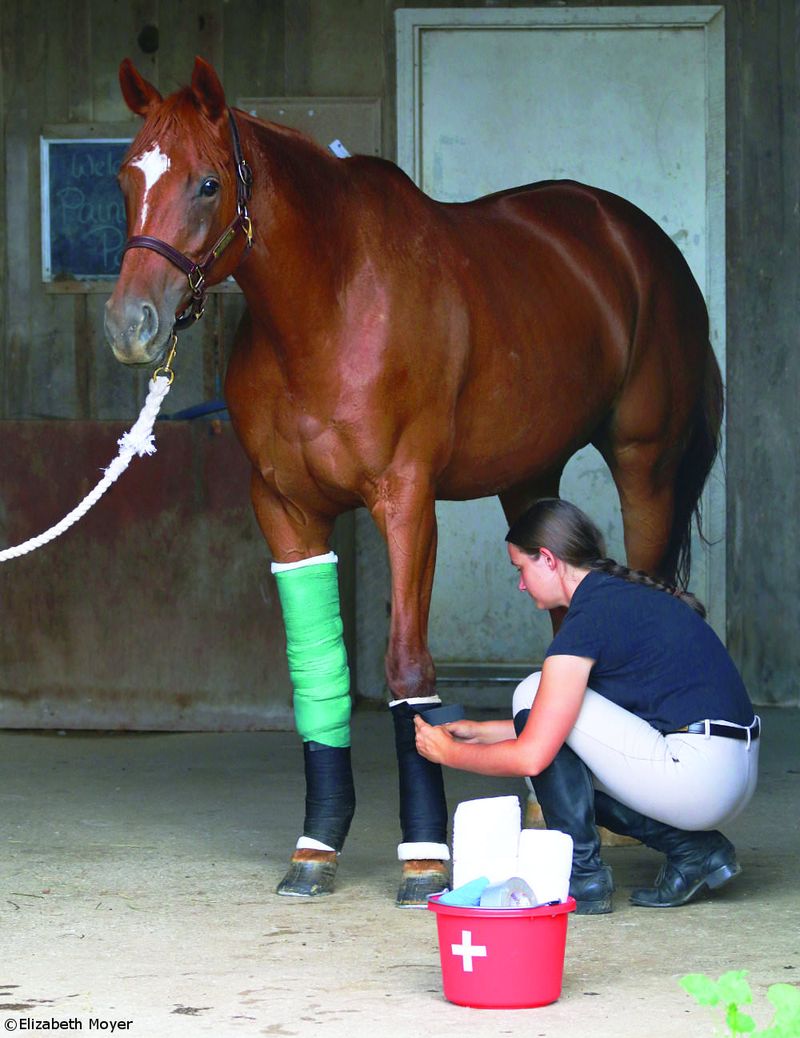
Preventing lameness is crucial for a horse’s mobility and quality of life. Regularly monitor your horse’s gait and consult with professionals if changes or discomfort arise.
Use proper hoof care, balanced nutrition, and appropriate exercise to minimize the risk of lameness. Ensure tack fits correctly to avoid strain or injury.
Addressing early signs of lameness promptly can prevent long-term damage or chronic issues. Proactive care and attention to your horse’s movement ensure they stay active, comfortable, and able to perform at their best.
Fly Control
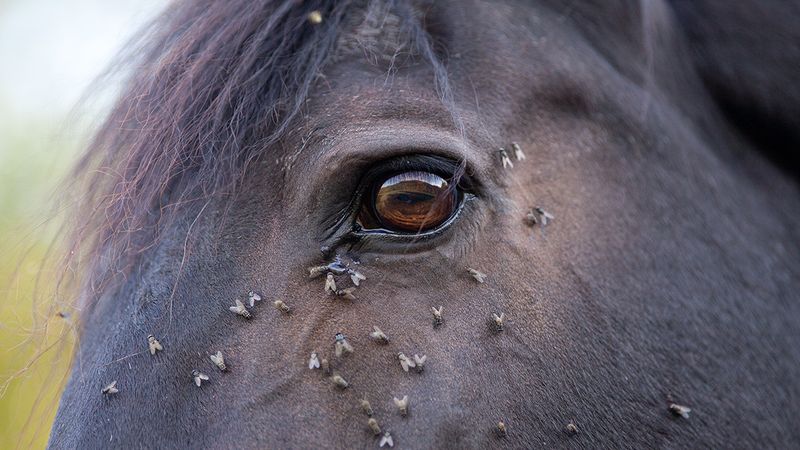
Effective fly control enhances your horse’s comfort and health. Use fly masks, sprays, and traps to minimize annoyance and prevent fly-borne diseases.
Maintain a clean environment to reduce fly breeding grounds. Regularly remove manure and use fans or screens in stables to deter flies.
Combining various fly control methods keeps your horse free from irritation and protects against potential infections or stress. A well-managed fly control strategy allows your horse to relax and focus on their activities without constant distraction or discomfort.
Joint Health Maintenance
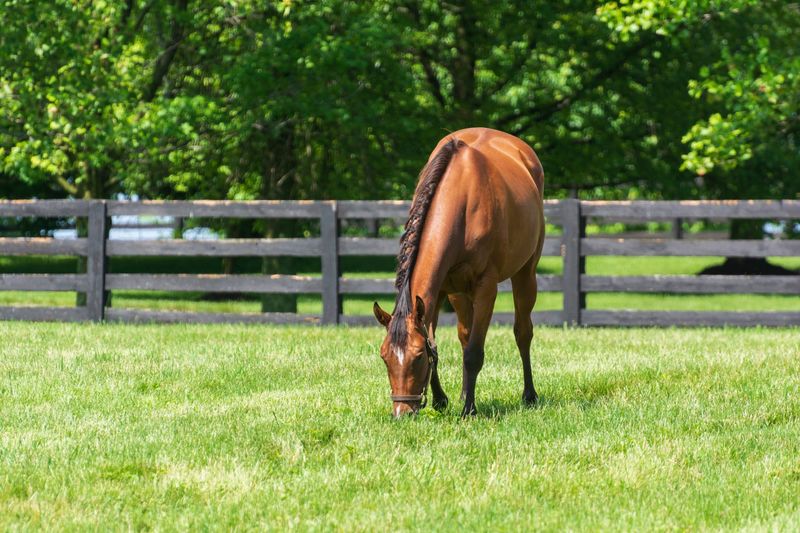
Maintaining joint health is essential for a horse’s longevity and performance. Provide a balanced diet with supplements like glucosamine or omega-3 fatty acids to support joint health.
Incorporate regular, low-impact exercise to keep joints flexible and reduce stiffness. Avoid overworking young or aging horses to prevent strain or injury.
Regular vet check-ups and monitoring help detect early signs of joint issues, allowing for timely interventions. Prioritizing joint health ensures your horse remains active, comfortable, and capable of performing tasks throughout their life.
Positive Reinforcement
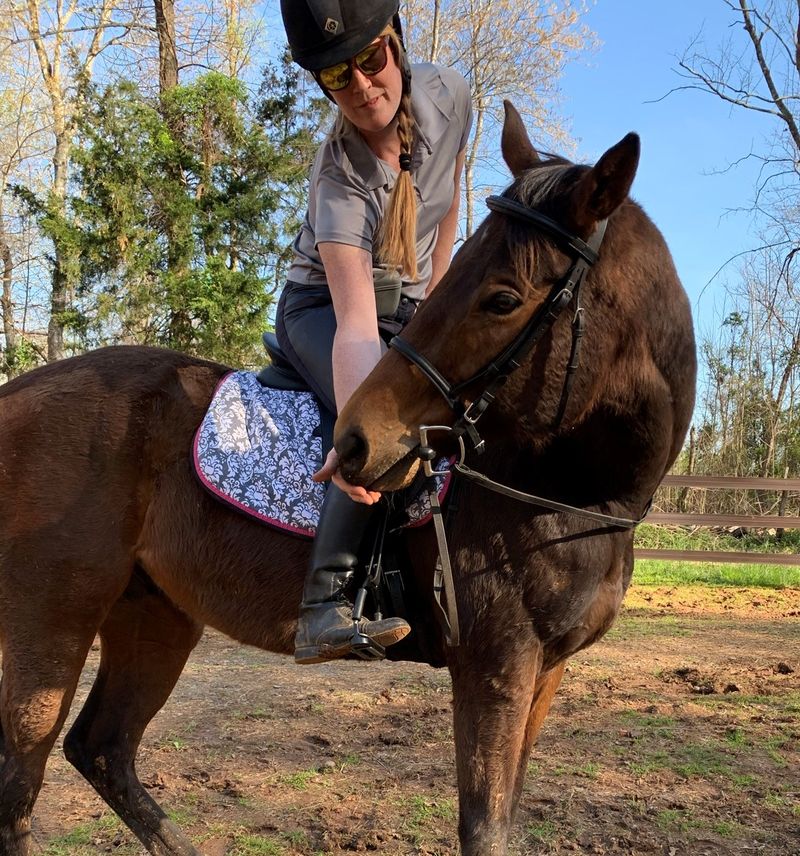
Using positive reinforcement in training builds trust and encourages desirable behaviors. Reward your horse with treats, praise, or gentle pats when they perform well.
This method enhances learning by associating positive outcomes with specific actions. Tailor rewards to your horse’s preferences and needs, ensuring they are meaningful and motivating.
Incorporating positive reinforcement strengthens your bond and promotes a willing, eager attitude in your horse. It creates a positive training environment that fosters confidence and willingness to learn, enhancing your horse’s overall experience.
Seasonal Coat Care
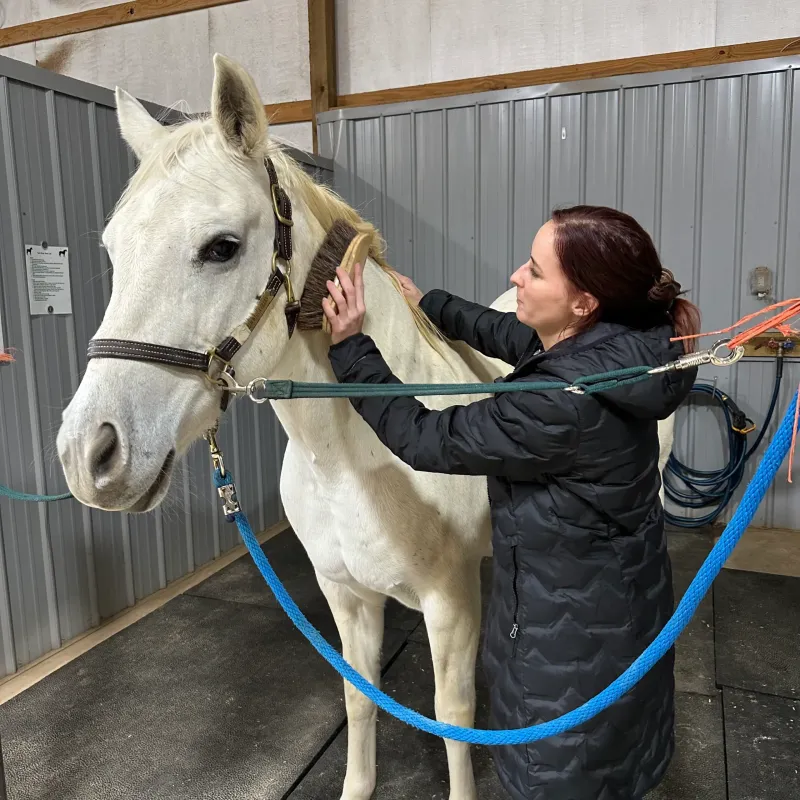
Seasonal coat care is important for a horse’s comfort and appearance. During shedding seasons, help remove excess hair with regular brushing to prevent matting and overheating.
Adjust grooming routines based on the climate, using appropriate tools and techniques. In warmer months, consider clipping thick coats to improve comfort.
Regular coat care enhances your horse’s appearance and helps regulate their body temperature. It ensures they remain comfortable through seasonal changes, supporting their overall health and well-being.
Understanding Body Language
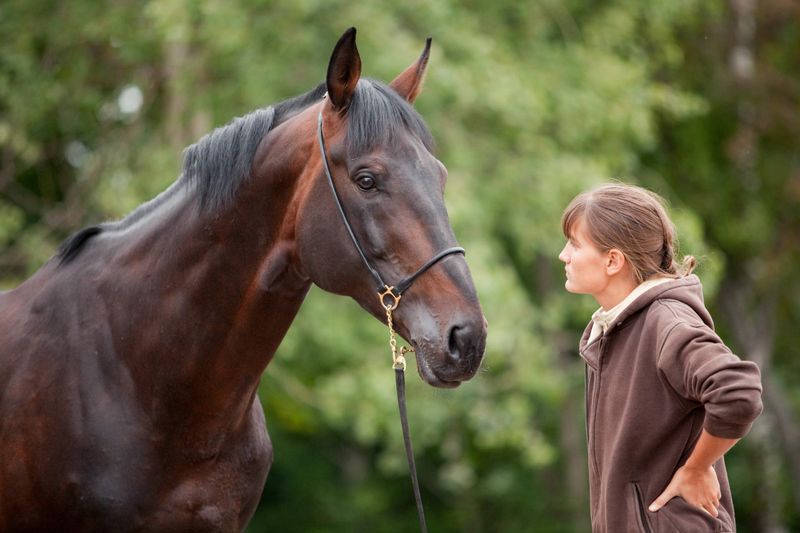
Understanding a horse’s body language is vital for effective communication and care. Observe their posture, ear positions, and facial expressions to gauge their mood and reactions.
Recognize signs of stress, pain, or discomfort, such as pinned ears, tail swishing, or head tossing. Responding to these cues can prevent escalation and improve your relationship.
Accurate interpretation of body language helps you anticipate your horse’s needs and maintain a harmonious bond. It enhances your ability to provide appropriate care and ensures a safe, respectful interaction.
Routine Desensitization
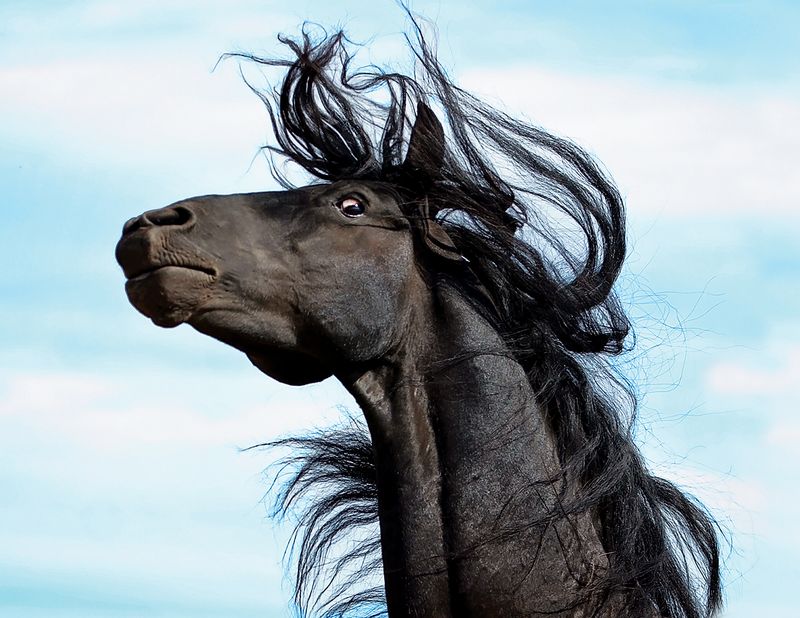
Routine desensitization helps horses become accustomed to various stimuli, reducing fear and anxiety. Gradually introduce them to new objects, environments, and sounds in a controlled setting.
Consistent exposure builds confidence and prevents spooking, making handling and riding safer. Tailor desensitization exercises to your horse’s temperament and progress at a comfortable pace.
This practice enhances your horse’s adaptability and readiness to face new challenges. It fosters a calm, composed demeanor, promoting safety and enhancing the horse’s overall experience in diverse situations.
Mystical Music Therapy
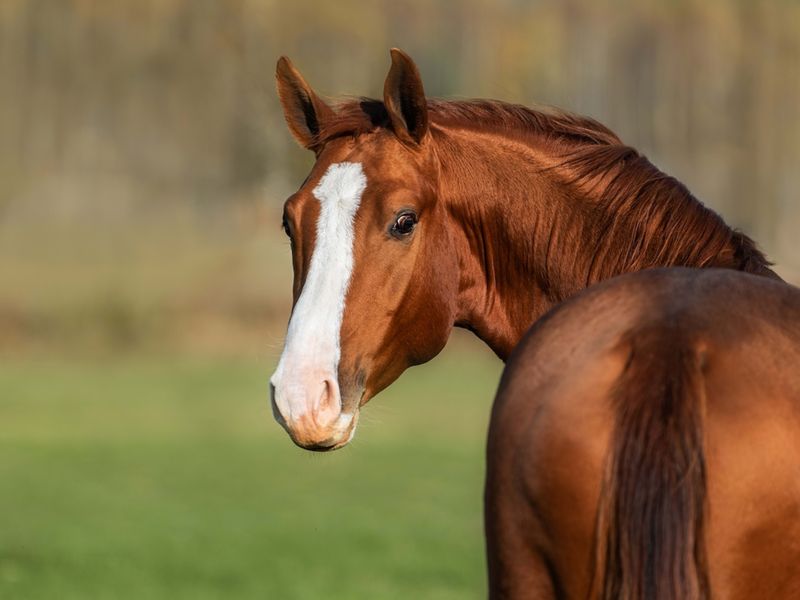
Transform your horse’s mood with mystical music therapy. Playing harp melodies can create a calming atmosphere in the stable, soothing anxious equines. Consider setting up a small concert space with cushions for your horse to relax while you strum away.
This unique approach taps into the calming effects of music, allowing horses to unwind and bond with their owners. It’s a delightful way to enhance your horse’s mental health.
Incorporate sessions into your routine, especially during stressful times like storms. Your horse will appreciate the enchanting experience, and you might find it equally therapeutic!

